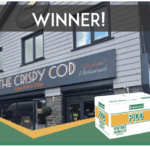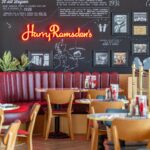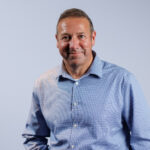Going carbon neutral earlier this year, Paul Williams, managing director of range supplier KFE, explains his vision for helping the industry follow his company’s lead
KFE as a company achieved carbon neutral status this year, why?
Morally it was the right thing to do because of the growing climate change crisis. We wanted to make sustainable changes within the business but also, coupled with the fact that we are selling the most gas efficient frying equipment in Europe, as a company, I felt we should have the same philosophy.
You are the first company in the fish and chip industry to go carbon neutral which is a great achievement, isn’t it?
Yes, I think it sets an example because we like to be at the forefront of what we do. We have made lots of small changes over the years but the big one was to achieve carbon neutrality, which we did by working with ClimatePartner, and now means the same amount of CO2 we release into the atmosphere is removed through reductions or offsetting. It was a big learning curve and it took us two years to understand where our carbon emissions were coming from and, more importantly, how we could reduce them. Now we are in a situation where we are winning sustainability awards because of where we are as a company. We’ve been acknowledged by some of the top industry awards – winning the Sustainable Catering Equipment Manufacturer of the Year at The Footprint Awards in March this year probably being the biggest one in the UK.
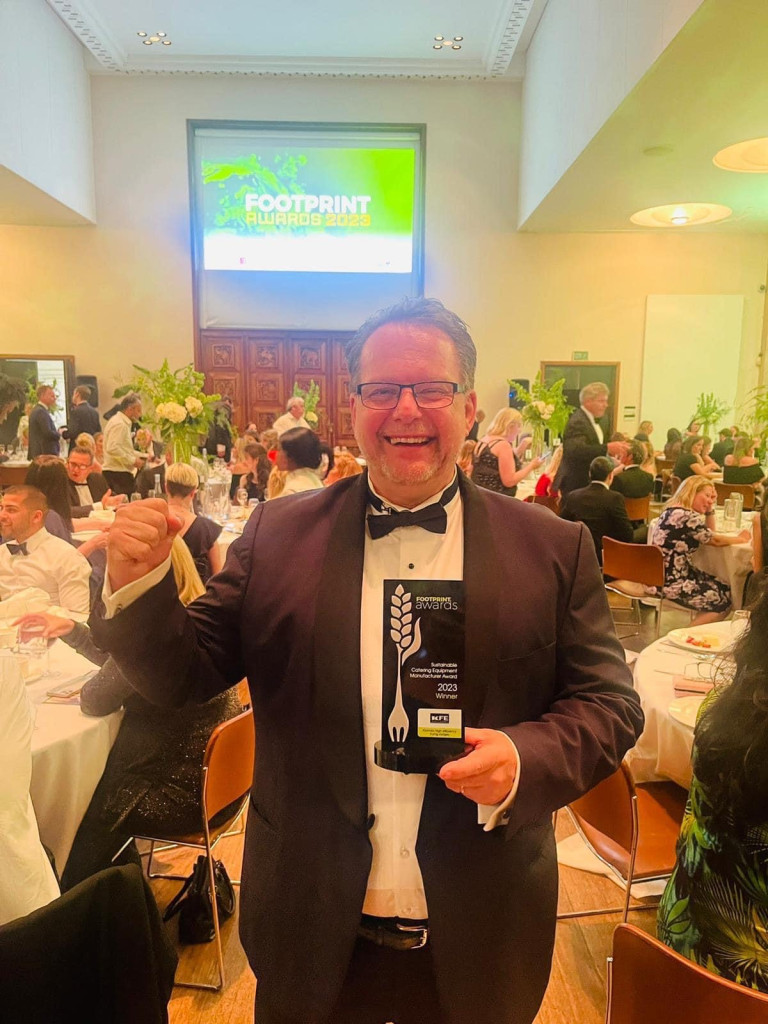

Where did your biggest CO2 emissions come from and how did you address that?
Our biggest CO2 emissions came from our vehicles so we changed the sales fleet to electric cars, which saw a substantial reduction. As well as reducing our carbon emissions, the savings we are making in terms of the cost of diesel compared to electric is huge. Unfortunately, there isn’t currently anything suitable to replace the vans for our engineers so there was nothing we could do about the service vehicles, which is why we then offset those emissions. We have also gone paperless in the office, for example 90% of our customers get their invoices and statements by e-mail rather than post, while the service department has switched to handheld devices for risk assessments. Things like that have made a massive difference. We also use a specific waste company that recycles locally. There are so many little things that we’ve done that, added together, make a big difference in reducing our carbon emissions.
Has going carbon neutral yourself lead any shops in the industry to do the same?
Yes, for example, Geoff Whitehead of Whiteheads Fish & Chips in Hornsea. He takes a very similar stance to us on the environment and as well as investing in solar panels, he has bought a Kiremko high efficiency frying range because he recognises the benefits of what we are doing. But I’m aware of not pushing it too much because it does cost money to go carbon neutral and, at the moment, I don’t think it’s a number one priority for a lot of shops.
Has the foot come off the pedal a little in terms of sustainability?
Yes, I think when we started our carbon neutral journey two years ago it was a bigger thing. The government was pushing harder towards zero emissions and they wanted companies and individuals to aim for that. Whereas, because of the financial situation over the past 12-18 months, there is less rhetoric about it at the moment, which I understand. You can’t be saying to everybody, you need to be going carbon neutral or reducing emissions when it’s costing money that in the current climate businesses haven’t got. However, when a certain normality returns to fish and chips, then sustainability will become more important again and, whereas the government may have pressed pause on carbon emissions, we are still looking at ways of reducing ours. Plus, going forward, it’s something we would like to help our customers with because it doesn’t matter whether it’s in a year, five years or 10 years’ time, businesses will be pressured to be carbon neutral. I think there will be an election at the end of next year so it’s probably not something either party will push too much now, but it is going to be pushed again, because everybody, whatever party it is, believes in climate change. If you believe in climate change, you’re going to encourage people to do something about it.
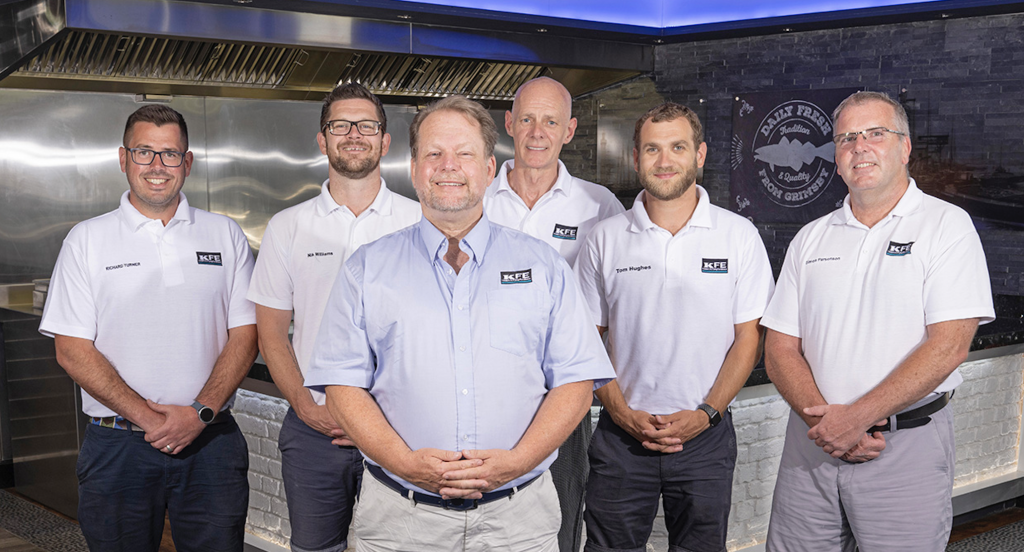

How do you plan to help your customers go carbon neutral?
We are talking to ClimatePartner about hopefully working with Kiremko customers to calculate their carbon footprint for them so that they can work towards becoming carbon neutral themselves as I believe that it will be something that will be introduced at some stage.
How easy or difficult will it be for the average fish and chip shop to go carbon neutral?
I actually think for shops to go carbon neutral it shouldn’t be too difficult because the largest source of emissions are probably going to be the electric and gas. If a shop switches to electric that’s recycled or nuclear, it is zero emissions, and if they are using a high efficiency range then the emissions will be minimal. There are other really simplistic steps shops can take – such as switching to LED lighting – that don’t cost a lot of money but lower your emissions. Obviously, every business is different, but the starting point is providing all the information to calculate a shop’s carbon emissions and then identifying where changes can be made. That is, ultimately, what we want to be able to do for our customers.
Now you’ve achieved carbon neutral status, what’s your next step?
We are constantly pushing forward, so next year we will be fitting solar panels to one of the roofs to provide green energy to the office. We were going to cover both roofs and sell any excess energy back to the grid, but something we have learned since looking into it is that if it costs you 30p to generate a unit of electricity, you only get 5p when you sell it back. So it’s pointless getting more panels than we need. It’s details like this that we are learning and that we can share with our customers.





